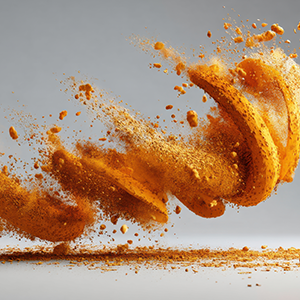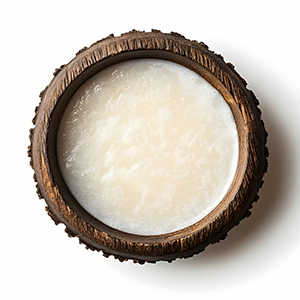Menopause & biological ageing: what’s really happening

We can’t stop time — but we can start to understand how our bodies change, and what to do about it.
As nutrition scientists, we believe in a food-first approach. But when the biology of ageing shifts so dramatically that your diet alone might not cover it, we believe that smart, targeted support can play a role. And one of the most under-discussed shifts is the one that happens at menopause.
The hidden acceleration
Research is increasingly clear: the transition through menopause is not just about hot flashes and hormonal change — it also corresponds with measurable acceleration in biological ageing. In other words, the clock isn’t only ticking in years; it’s ticking at a different rate.
For example:
-
A landmark study found that women who entered menopause at age 42 ended up biologically “older” (when measured by epigenetic clocks) than women who entered at age 50.
-
Another large-scale analysis of over 46,000 post-menopausal women found a strong correlation between years since menopause and metabolic signatures of ageing: increased odds of short telomeres, higher allostatic load and greater deviation in phenotypic age.
What this means
The drop in oestrogen, the shift in metabolism, the change in bodily systems at menopause — they don’t just mark the end of reproductive years, they mark a change in the pace of ageing.
Why does this happen?
A few key mechanisms seem to be at play:
-
Hormonal shift: Oestrogen and progesterone support many cellular processes. Their decline appears to remove a layer of protective regulation in cells. In one study, oestrogen deficiency was linked to markers of accelerated ageing in skin and other tissues.
-
Metabolic change: Menopause ushers in changes in fat distribution, lipid metabolism, insulin sensitivity — all of which are connected to what biogerontologists call the “hallmarks of ageing”.
-
Cellular stress & resilience: Aging research highlights processes such as mitochondrial dysfunction, oxidative stress, and epigenetic alteration. These mechanisms may be more exposed as hormone levels shift, making the post-menopausal period a critical window.
What this means for you
If you’re approaching or have entered menopause, consider this your “wake-up moment” for your cells. The good news is: this is not inevitable decline. Your lifestyle, nutrients, and strategic support matter a lot.
Here’s what to think about:
-
Diet: Prioritise whole foods, key nutrients that support mitochondrial health (think B-vitamins, magnesium, NAD⁺ precursors).
-
Movement: Strength training, aerobic work and flexibility help maintain muscle, optimise metabolism and support cellular resilience.
-
Targeted support: This is where formulations aligned with ageing biology come into play — supporting mitochondrial function, antioxidant defences, NAD⁺ pathways and cellular repair.
-
Timing matters: Because the biological shift at menopause is real, earlier-action = better. Waiting too long means you’re playing catch-up.
How CAMINO fits in
At CAMINO, we craft our formulas with this shift in mind. Our Premium Vitality Capsules are designed to support energy production, cellular resilience, and key pathways such as NAD⁺ metabolism — all of which matter in the post-menopausal timeframe.
Rather than aiming to “reverse ageing” or make impossible promises, our goal is to equip your cells with the tools to age well. Because menopause is a turning point — there’s no pause button—but there is a path to stronger vitality. Walk it with us!
Key takeaway:
Biological ageing appears to accelerate after menopause — but targeted nutrition, exercise and mitochondrial support can help you stay energised, resilient and well.
Learn more about Premium Vitality Capsules →





